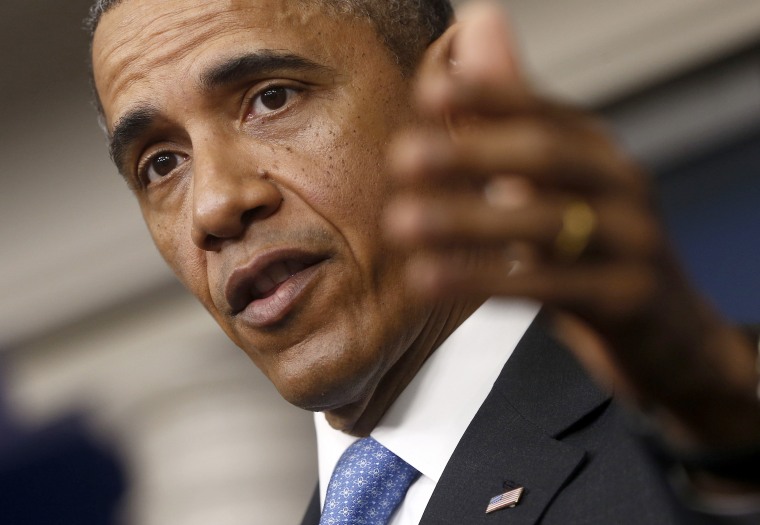President Obama made history in April by becoming the first president to address Planned Parenthood's annual conference. The reproductive healthcare organization has been at the center of a particularly vehement defunding effort from the right over the last two years. Despite those attempts, the organization "is not going anywhere," Obama assured the assembled representatives and supporters.
It was a symbolic act of solidarity that earned the President praise from reproductive rights advocates. Just a week later, however, the Obama administration made a substantive decision that greatly eroded the sense of his support for reproductive rights and angered those same advocates.
Last week, a federal judge ordered the Food and Drug Commission to lift all age restrictions on the "morning after" pill, the emergency contraception that can prevent pregnancy for up to five days after unprotected sex. The order makes the pill available over the counter to anyone, of any age, starting in early May. Then, to the disappointment of many supporters, the Obama administration decided to appeal that decision.
Currently, the one-step pill known as Plan B is available over the counter to patients aged 17 and over. The FDA had tried to make the pill available without an age restriction. But the Department of Health and Human Services put one in place in 2011. Obama supported the move, stoking concerns that with less than a year before the presidential election, he was allowing politics to influence healthcare policy. The judge who ordered the lifting of all age restrictions leveled a similar claim, writing that the motivation “was obviously political," and calling HHS Secretary Kathleen Sebelius's decision "arbitrary, capricious and unreasonable."
That judge was correct.
The scientific evidence in favor of making the morning after pill available is clear. Anyone with an interest in lowering the rate of abortion in America, or in sparing teenagers the physical, emotional, and financial burden of a pregnancy they haven't planned and don't want, ought to welcome the wider availability of the morning after pill. There have been concerns that access to Plan B will make teenagers more likely to have sex.
Obama seemed to share them, despite a lack of evidence, when he argued in 2011 that an age restriction was a good idea.
“As the father of two daughters, I think it is important for us to make sure that we apply some common sense to various rules when it comes to over-the-counter medicine,” the president said then. He went on to explain that the decision was made after Sebelius felt it was possible that a girl as young as 10 could find the medication “alongside bubble gum or batteries,” and “if not used properly, could end up having an adverse effect. And I think most parents would probably feel the same way."
As uncomfortable as it is for some parents to imagine their teenage children as sexual beings, that discomfort is no excuse for denying all teenagers this form of healthcare. Evidence shows that readily available contraception, and education on its proper use, makes teenagers less likely to become pregnant before they want to be. A good proportion of American teenagers have sex for the first time at age 15 or earlier, and almost a quarter of them won't use contraception during that first time they have sex. This means that there are girls under the age of 15 who want and need the morning after pill. There is no evidence, however, that access to contraception makes teenagers more likely to have sex, and we ought to ask ourselves what it is about teen sex that makes us so uncomfortable that we are willing to throw science to the wind.
The Obama administration's decision to appeal the court ruling and to ask for continuing age restrictions on healthcare for teenagers is a victory of squeamishness over science. And while reproductive rights advocates were rightly pleased to see the president show up to show his support in April, that symbolism is far less important than the substantive steps he took to restrict reproductive rights last week. Given the choice, those advocates whose tireless efforts in 2012 helped to get the president reelected would have preferred that he demonstrate his support in deeds, not simply in words.
